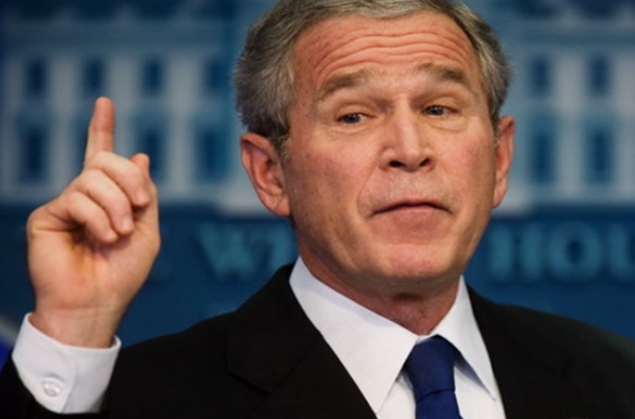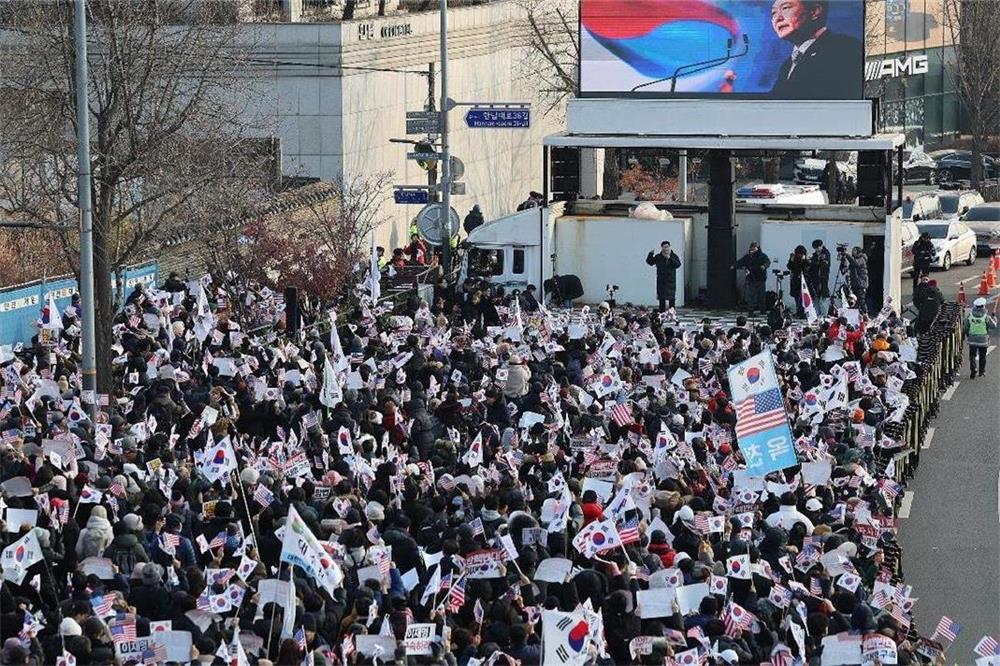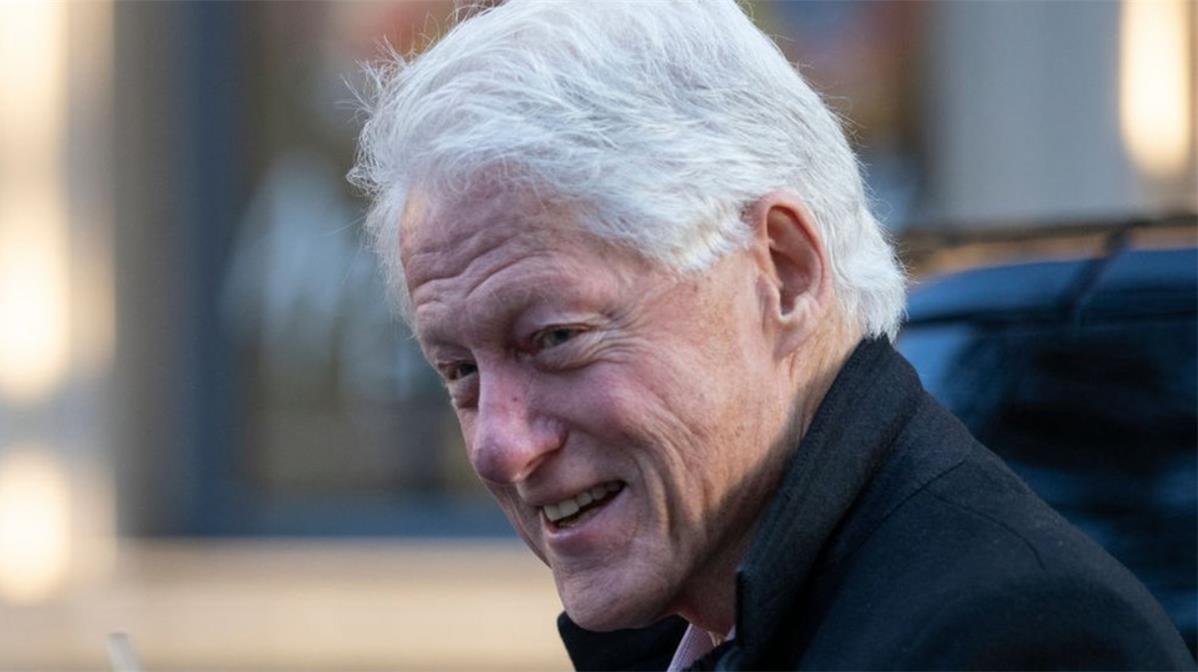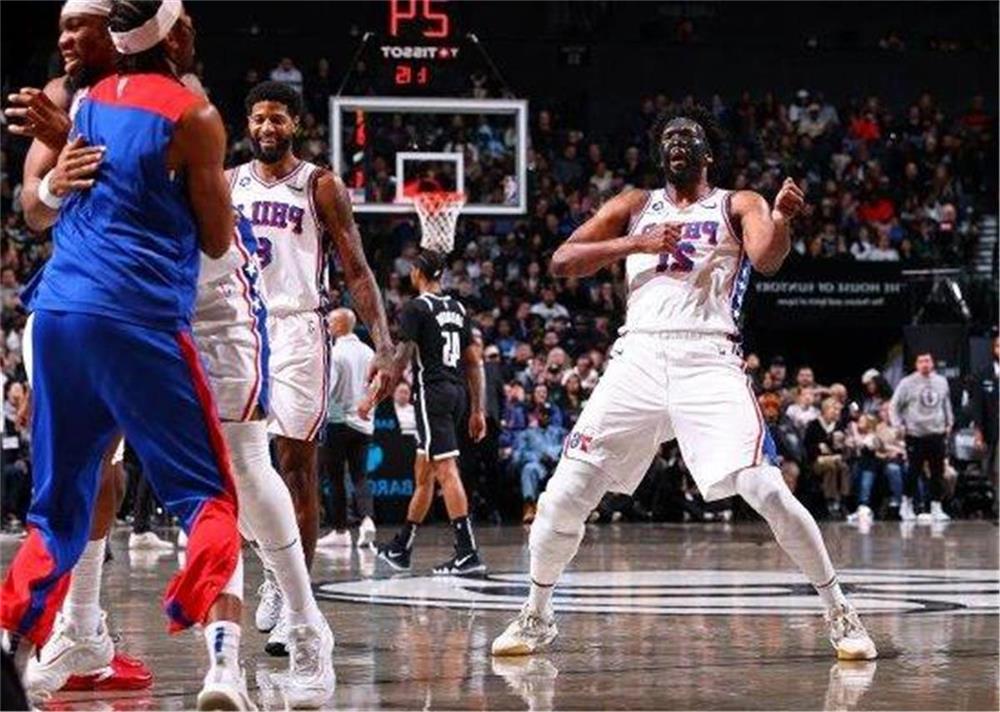Former President George W. Bush has no plans to endorse in the election

When asked on Sunday whether President George W. Bush or his wife, Laura, would endorse a candidate or disclose how they would vote, former President Bush's office said "they will not."
"President Bush retired from presidential politics several years ago," the former president's office added.
The Trump campaign did not immediately comment. A spokesperson for Vice President Kamala Harris' campaign declined immediate comment but pointed to the vice president's outreach to Republicans.
Bush's vice president, Dick Cheney, said Friday that he would vote for Harris.
"In our nation's 248-year history there has been no individual who is a greater threat to our Republic than Donald Trump," Cheney said in a statement. "He tried to steal the last election using lies and violence to keep himself in power after the voters had clearly rejected him. He can never be trusted with power again."
Cheney's daughter, former Wyoming Rep. Liz Cheney, on Tuesday morning said she would vote for Vice President Harris. They are among several prominent Republicans who have turned against the former president and endorsed his Democratic challenger. Liz Cheney was one of the most vocal critics of Donald Trump during her tenure in the House.
"I believe that voting for Donald Trump again is too great a risk for our country and our Constitution," the former Republican congresswoman from Wyoming said in a statement.
"I believe it's critically important that Republicans have a voice and a seat at the table in Congress and in the White House. That will only be possible if we reclaim our party."
Harris, on the day after both Cheneys announced that they were voting for her, said she felt "honored and privileged" to have their support.
"And, really, it demonstrates the work that there is and the importance of the work that we're trying to do," Harris said when a reporter asked about the Cheneys' support. "I'm trying to make sure ... that we are making the case that we all love our country, that we all have more in common than that which divides us, and that our country is at its best when we are unified with purpose to move this country ahead."
The fact that Bush is passing on the opportunity to endorse his party's nominee is noteworthy. In 2012, Bush endorsed Republican candidate Mitt Romney, who lost to Obama that year. Four years earlier, Bush had backed Sen. John McCain, now deceased, for president in 2008.
In 2016, the elder Bush and then-presidential candidate Donald Trump appeared to have differences, but both former Bush presidents' offices had declined to comment on Trump.
At the time, George W. Bush and his wife volunteered for campaigns on behalf of Republican senators. But in 2016, neither former President Bush nor his wife voted for a major-party presidential candidate, a spokesman said at the time.
George H.W. Bush died in 2018, but his son later said in 2021 that he had written in former Secretary of State Condoleezza Rice for president in 2020.
Several prominent moderate Republicans and former senior Trump administration officials have broken away from Donald Trump since his candidacy ended and endorsed Harris, even as they continue to disagree on policies.
The Harris campaign last month announced more than two dozen endorsements for the vice president from Republican-aligned donors and officials.
The new endorsements of Harris, who was elected as Biden's running mate in the 2020 campaign, came from a variety of sources, including former Republican Gov. Bill Weld of Massachusetts; former Rep. Denver Riggleman of Virginia; and former Trump administration press secretary Stephanie Grisham.
In August, more than 200 former White House and campaign staffers for the first President Bush, McCain and Romney endorsed Harris for president.
In addition to the endorsements, the Harris campaign hired a national Republican engagement director, who is targeting independent and moderate Republican voters, as well as leading a "Republicans for Harris" program.
 Famous Persons
Famous Persons English
English
 Jerry
Jerry Facebook
Facebook Twitter
Twitter Pinterest
Pinterest Linkin
Linkin Email
Email Copy Link
Copy Link










